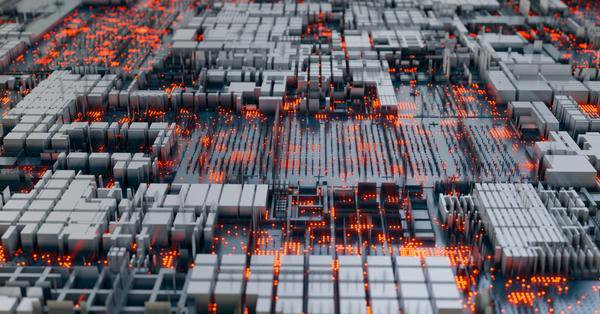
Paul Scharre
@paul_scharre
Followers
16K
Following
14K
Media
231
Statuses
14K
Executive Vice President and Director of Studies at CNAS. Author of "Four Battlegrounds: Power in the Age of Artificial Intelligence."
Joined November 2013
It's out! I'm excited to share with you my new book, Four Battlegrounds: Power in the Age of Artificial Intelligence. https://t.co/LnIsixzhTz! Five years in the making, Four Battlegrounds explores the U.S.-China rivalry in AI and how AI is changing global power.
wwnorton.com
An NPR 2023 'Books We Love' Pick One of the Next Big Idea Club's Must-Read Books 'An invaluable primer to arguably the most important driver of change for our future.' —P. W. Singer, author of...
19
31
111
Are drones offense or defense dominant? @paul_scharre of @CNASdc explains the first and second order effects. Link to the full interview below
4
15
67
How might AI transform warfare? Check out my recent discussion with with @rai_sur11
New episode with @paul_scharre of @CNASdc and it's my favorite yet. He explains - how AI’s superhuman command and control abilities will change the battlefield - why offense/defense balance isn’t a well-defined concept - why there could be “race to the bottom” dynamics for
1
1
2
New episode with @paul_scharre of @CNASdc and it's my favorite yet. He explains - how AI’s superhuman command and control abilities will change the battlefield - why offense/defense balance isn’t a well-defined concept - why there could be “race to the bottom” dynamics for
2
4
20
How do advances in synthetic bio and related technologies affect the offense/defense balance in bio? "The identification of four out of five asymmetries favoring attackers suggests that biology currently confers a distinct advantage to attackers." https://t.co/eENmGHfg6r
rand.org
How can the offense-defense balance, a framework commonly applied to conventional and strategic military domains, inform our understanding of the biological threat landscape?
2
11
53
"When the United States sells chips, they're gone forever—disappearing into data centers with unknown users pursuing unknown goals. There's another option: give users the computing power of chips remotely." Terrific point by @janet_e_egan and @ohlennart.
Selling H20 (and potentially Blackwell?) chips to China gives up valuable leverage. @ohlennart and I argue there's a smarter approach: let China access these chips remotely via the cloud. 1/
6
9
48
I had to triple-check this. It's common knowledge that DeepSeek and Chinese AI is catching up with the US. But 5 years of supercomputer data show that the opposite is actually happening. In fact, the US is smashing it out the park.
25
80
278
Both things are true: - Chinese AI is catching up (software) - The US is smashing it out of the park (hardware) One key difference is that you can export-control compute, but not algorithmic insights (or not well). Compute is the moat, and that’s what you see here.
I had to triple-check this. It's common knowledge that DeepSeek and Chinese AI is catching up with the US. But 5 years of supercomputer data show that the opposite is actually happening. In fact, the US is smashing it out the park.
1
5
36
Selling H20 (and potentially Blackwell?) chips to China gives up valuable leverage. @ohlennart and I argue there's a smarter approach: let China access these chips remotely via the cloud. 1/
20
42
339
Beyond implications for researchers, hobbyists, and small orgs, this trend also bears on AI safety and governance. Any dangerous capabilities appearing at the frontier are likely to be widely available and unrestricted in under a year, complicating regulatory options.
1
5
33
Frontier AI performance typically reaches consumer hardware in just 9 months. With a single gaming GPU, you can run open-weight models matching the benchmark performance of the absolute frontier from less than a year ago. 🧵
16
109
542
💡Funding opportunity—share with your AI research networks💡 Internal deployments of frontier AI models are an underexplored source of risk. My program at @CSETGeorgetown just opened a call for research ideas—EOIs due Jun 30. Full details ➡️ https://t.co/Y8sU3hwW1j Summary ⬇️
3
30
86
New report from @bill_drexel and I on US-China tech competition in Brazil! We focus on AI compute 🖥️, smart cities 🌆, and LEO satellites 🛰️ While zooming in on Brazil, the insights speak to global dynamics in the US-China tech competition /19
3
12
23
We just released an in-depth case study on the US-China tech competition in the key "swing state" of Brazil 🇧🇷 from my colleagues @rubyscanlon and @bill_drexel. They dive into America's opportunity to recover lost ground with a focus on AI compute, LEOs, and smart cities. ⬇️
New report from @bill_drexel and I on US-China tech competition in Brazil! We focus on AI compute 🖥️, smart cities 🌆, and LEO satellites 🛰️ While zooming in on Brazil, the insights speak to global dynamics in the US-China tech competition /19
1
3
7
The big race is tomorrow! My dad, runner Dave, is running the Boston Marathon. At age 75, he qualified for Boston for the first time! Dave is raising money for the New England Center and Home for Veterans. Click below to donate! https://t.co/L5BwOt8LJf
0
2
9
I'm excited to share my new TED talk on how to govern the most powerful forms of AI. By regulating computing hardware, we can govern AI from the ground up and build the foundation for a secure and prosperous future. https://t.co/CLQgGishQv
ted.com
AI could unlock incredible benefits or unleash catastrophic risks — the difference depends on how we govern it, explains national security expert Paul Scharre. He explores why regulating the physical...
1
8
28
The potential emergence of AGI is plausible. The U.S. national security community should take it seriously—and plan for it. My testimony to the Senate Armed Services Committee Cybersecurity Subcommittee during a hearing on cyber and AI:
rand.org
Leading AI labs in the United States, China, and elsewhere are in hot pursuit of artificial general intelligence (AGI). Whether AGI is achieved or not, its development could present serious national...
3
12
38















